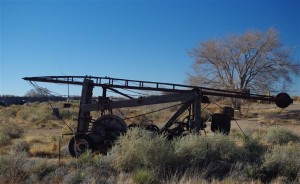Low prices lead to waste. My next car may be a natural gas car. We’ve got several stations now in the region. No more towing you to Joplin to fill up if you run out. NG will be cheap, possibly for decades to come. By this time next year I suspect about 50% of all oil companies will either merge or file bankruptcy….some simply close their doors. Many of them borrowed money on PUD…Proven (but) Undeveloped reserves. That’s gas/oil that is proven to be in the ground but no well has been drilled. Some companies have 50% of their stated reserves in PUD. Well, that’s fine. But the SEC gives you 5 years to drill it or take it off the books. Many of the companies have been booking those for years and as a result, they have to drill ’em or take them off their books. They can’t do either without destroying the company.
You are not going to drill a Haynesville $17 million well to sell into a $1.40/MCF market. You can’t. Ditto with all that Bakken oil. If lifting costs are $50, then you cannot drill for $38 oil. Costs have come down but there is a limit. You still have to pay employees, pay for fuel, autos, drilling fluids (which have been slashed in half cost wise), frack sand, etc. All those costs are about half what they were two years ago, but the flip side is you still spend $2 million or more to drill a cheap horizontal well and the more expensive ones – Eagle Ford, Haynesville, and Bakken are simply too expensive.
The drilling will seize up soon. Glut or no glut. The short term (10 year) solution is for the states to step in and prorate oil and gas. They did it 80 years ago and they can do it now. Simply not allow companies to produce on open choke. Force them to cut production in half and regulate the percentage month by month. Once demand and supply become more balanced, then the state benefits with higher taxes, and the consumer gets a gas price that does not fluctuate wildly season by season and year by year. Destroying the entire industry for 20 years and building it back up for 10 only to crush again is a waste of resources. To levelize the demand / supply curve would benefit all.
Today the career explorer will have to find something else to do, perhaps for the next ten years, perhaps for the rest of their working career. Explore for diamonds, go overseas, hunt for helium, there is a lot of things one can do. But it is a waste of your time to simply wait, thinking that the oil patch will quickly rebound in the coming months and you will go back to work over-producing oil at costs that had got out of control in the first place.

